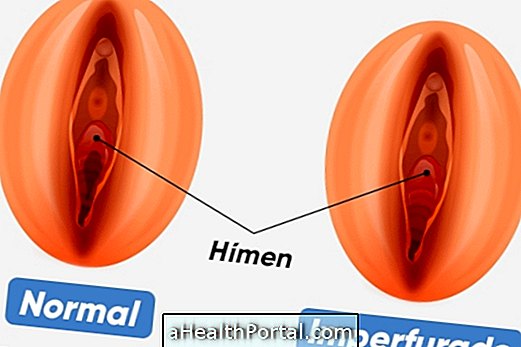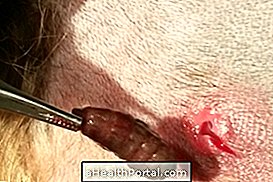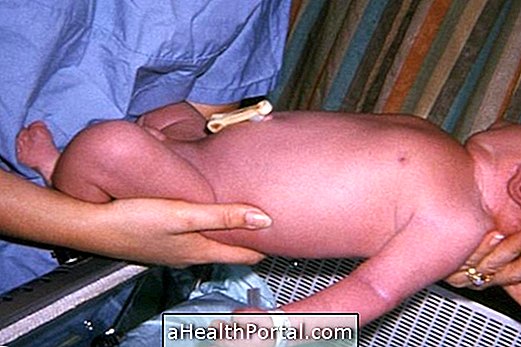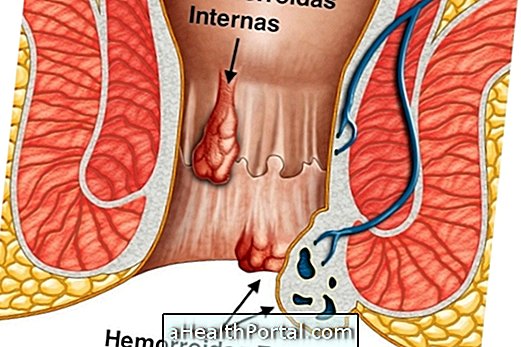Treatment for tinnitus at the ear depends on the cause of the ear and may include simple measures such as removal of a wax plug that may be blocking the ear, use of antibiotics to treat infection, or the placement of a hearing aid for improve hearing loss, for example.
However, in most cases, it is necessary to perform a set of therapies that involve sound therapies, use of anxiolytic drugs or antidepressants, and treatment of causes that may be triggering this symptom, such as hormonal changes, high blood pressure, diabetes or use certain drugs, for example. In addition, alternative therapies such as acupuncture or relaxation techniques can be very helpful in some cases.
Despite the many causes, most of the time, tinnitus is caused by hearing loss, caused either by exposure to very loud sounds or even by aging itself, so it is more common in the elderly. Learn more causes in: Tinnitus in the ear.
So, some of the treatments most used to treat tinnitus in the ear are:

1. Remedies
There is no single remedy responsible for curing tinnitus in the ear, however, some may be used as forms of treatment or at least to alleviate the symptoms. Some options include:
- Anxiolytics or antidepressants, such as Lorazepam or Sertraline, for example, as a way to relieve anxiety and depressive symptoms, and may also improve the quality of sleep, which triggers or worsens tinnitus;
- Vasodilators, which act by dilating the vessels of the ear, such as Betametin or Cinarizine, for example, may be useful in some situations, such as vertigo or spasm of the cerebral blood vessels.
These medicines should be indicated by the doctor and should preferably be used for a limited period of time until the symptoms are relieved.
In addition, treatment with medication should be done if the person has a known illness to cause tinnitus, which can be diabetes, high cholesterol, high blood pressure or hyperthyroidism, for example, according to the doctor's recommendations.
On the other hand, it is known that the use of some medications may trigger tinnitus, and if they are being used by a person with this symptom, talk to the doctor to have them removed or replaced. Some examples are ASA, anti-inflammatory, chemotherapeutic, some antibiotics and diuretics.
2. Hearing aid
As the person complaining of tinnitus in the ear often also has a considerable hearing loss, the use of hearing aids will help you better identify external sounds, thus minimizing the attention given to tinnitus in the ear, which is a internal sound. Understand better how the hearing aid works and the major types.
3. Sound Therapy
It is characterized by the use of sounds in the environment to lessen the perception of tinnitus, and includes putting white noises, songs or sounds of nature for example, always with the purpose of avoiding silence and diminishing attention to tinnitus.
Currently there are specific devices of various sizes and prices that can make noise, and can be useful in many cases indicated with the guidance of the otorhinolaryngologist and speech therapist.

4. Behavioral Therapy
Behavioral therapy, or tinnitus retraining therapy, consists of sound and training techniques that stimulate ways to "ignore" tinnitus, which can be individual or in groups. It will help the person to set new goals for when the tinnitus appears and it is difficult to ignore it.
5. Dietary changes
It is common to have a habit of eating foods that can trigger or worsen tinnitus, and for effective therapy it is necessary to avoid the consumption of sugary foods, caffeine, alcohol, artificial sweeteners such as aspartane, as well as cigarette.
6. Dental Treatments
Temporomandibular joint (TMJ) dysfunction is one of the causes of tinnitus, so it is recommended that for people with this type of alteration, dental treatment should be done, which may consist of the placement of a rigid plate that covers the sleeping teeth and physical therapy with postural reprogramming exercises, for example. Learn more about what is temporomandibular dysfunction and how to treat it.
7. Alternative Therapies
Some of the therapies that may contribute to the treatment of tinnitus include:
- Acupuncture : acupuncturists argue that it is essential to treat the ear's neck and neck to treat tinnitus because the problem is often not in the ear itself but in poor blood circulation throughout the region;
- Relaxation techniques : may be helpful in improving the sleep pattern, decrease and anxiety, and decrease tension in the muscles of the head and neck;
- Music Therapy : Scholars claim that the development of musical treatments compatible with each person's musical taste can help lessen the sensation of tinnitus by being able to alleviate the perception of uncomfortable sound. Learn more about what music therapy is and its benefits.
In addition, therapies known to relieve stress, such as yoga and meditation for example, may have their importance, since stress and anxiety are important triggers of tinnitus.

























